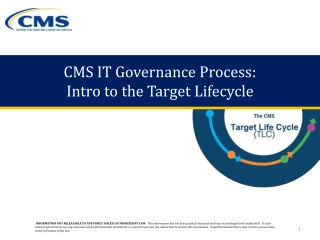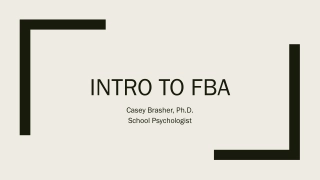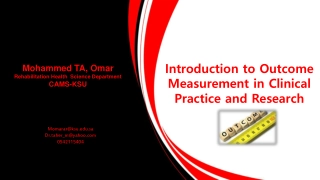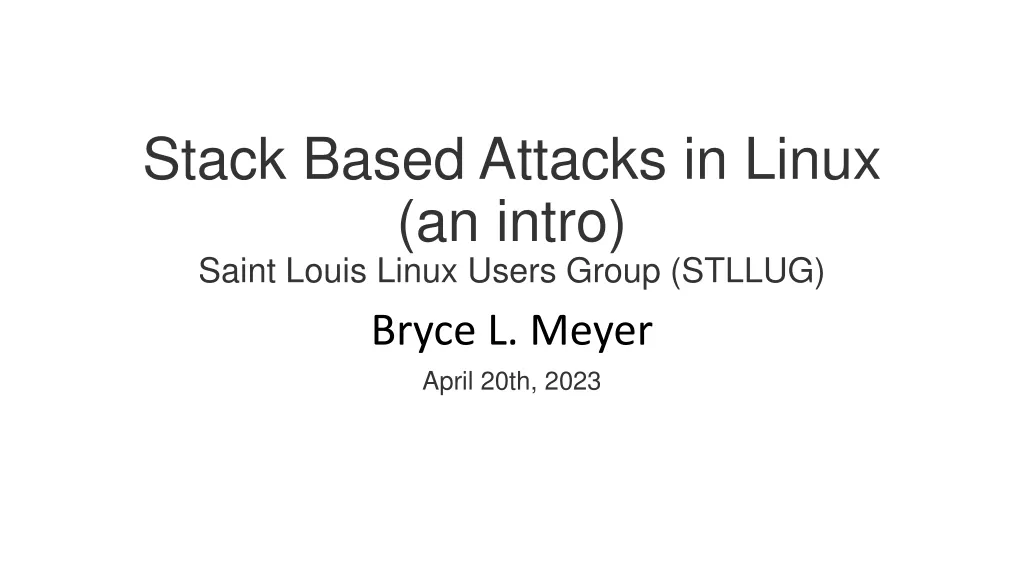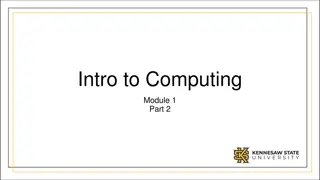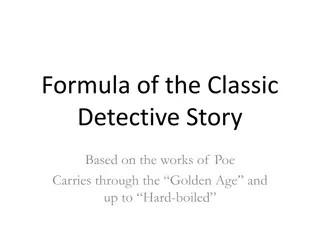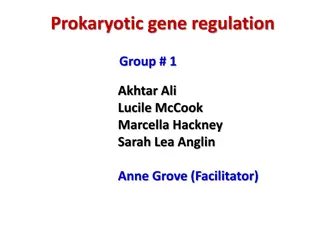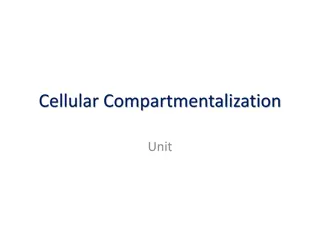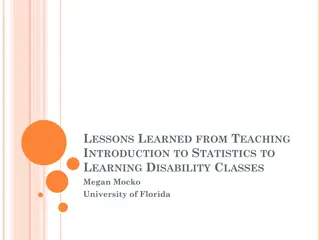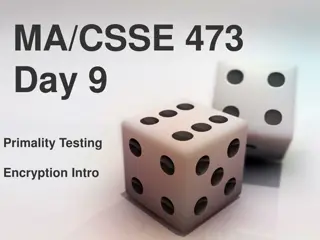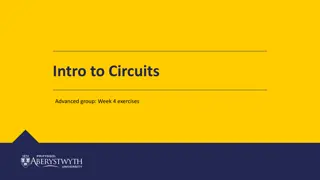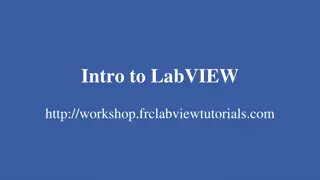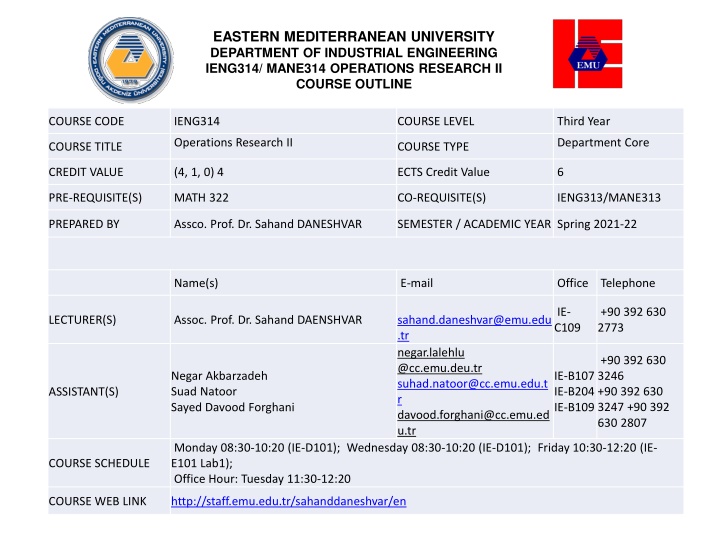
Operations Research II Course Outline at Eastern Mediterranean University
This course at Eastern Mediterranean University's Department of Industrial Engineering delves into uncertainty, risk, and probabilistic approaches in Operations Research. Students will explore various mathematical models and topics, including decision analysis, utility theory, Markov chain models, queuing theory, and game theory. The course aims to develop students' decision-making skills under uncertainty and enhance their problem-solving abilities. For more details, visit the course web link provided.
Download Presentation

Please find below an Image/Link to download the presentation.
The content on the website is provided AS IS for your information and personal use only. It may not be sold, licensed, or shared on other websites without obtaining consent from the author. If you encounter any issues during the download, it is possible that the publisher has removed the file from their server.
You are allowed to download the files provided on this website for personal or commercial use, subject to the condition that they are used lawfully. All files are the property of their respective owners.
The content on the website is provided AS IS for your information and personal use only. It may not be sold, licensed, or shared on other websites without obtaining consent from the author.
E N D
Presentation Transcript
EASTERN MEDITERRANEAN UNIVERSITY DEPARTMENT OF INDUSTRIAL ENGINEERING IENG314/ MANE314 OPERATIONS RESEARCH II COURSE OUTLINE COURSE CODE IENG314 COURSE LEVEL Third Year Operations Research II Department Core COURSE TITLE COURSE TYPE CREDIT VALUE (4, 1, 0) 4 ECTS Credit Value 6 PRE-REQUISITE(S) MATH 322 CO-REQUISITE(S) IENG313/MANE313 PREPARED BY Assco. Prof. Dr. Sahand DANESHVAR SEMESTER / ACADEMIC YEAR Spring 2021-22 Name(s) E-mail Office Telephone IE- C109 +90 392 630 2773 sahand.daneshvar@emu.edu .tr negar.lalehlu @cc.emu.deu.tr suhad.natoor@cc.emu.edu.t r davood.forghani@cc.emu.ed u.tr LECTURER(S) Assoc. Prof. Dr. Sahand DAENSHVAR +90 392 630 3246 +90 392 630 3247 +90 392 630 2807 Negar Akbarzadeh Suad Natoor Sayed Davood Forghani IE-B107 IE-B204 IE-B109 ASSISTANT(S) Monday 08:30-10:20 (IE-D101); Wednesday 08:30-10:20 (IE-D101); Friday 10:30-12:20 (IE- E101 Lab1); Office Hour: Tuesday 11:30-12:20 COURSE SCHEDULE COURSE WEB LINK http://staff.emu.edu.tr/sahanddaneshvar/en
COURSE DESCRIPTION This course introduces uncertainty, risk, and probabilistic approaches to Operations Research. Elementary mathematical models and topics to be covered in this course are : review of probability theory with illustrations from inventory; decision analysis; decision trees and Bayes rule; utility theory approach; Analytic Hierarchy Method; Markov chain models, Chapman-Kolmogorov equations, steady-state probabilities and their computation, and applications; Queuing Theory, M/M/c infinite and finite capacity queuing models and optimization, queuing networks; two-person, constant and non-constant sum games and their analysis and applications. COURSE OBJECTIVES The main objectives of this course are: 1. 2. Modeling the decision making problems under uncertainty. (Student Outcomes (SO): 1,2,4,6) Solving the problems under uncertainty (Maximin, Maximax, Minimum Regret and Expected Value criterions)(SO: 1,2,6) Utility theory (SO: 1,2,6) Solving the problems under uncertainty by utility function.(SO: 1,2,6) Solving the problems under uncertainty using probability notions (Decision tree method). (SO: 1,6) Applying the Analytic Hierarchy Process (AHP) for decision making. (SO: 1,2,4,6) Markov Chain as a stochastic process. (SO: 1,2,6,) Constructing the transition probability matrix and n-step transition probability matrix. (SO: 1,2,6) Classification of the states in Markov Chain. (SO: 1,6) 10. Poisson Process as a stochastic process.(SO: 1,2,6,7) 11. Applying the arrival and service processes in Queuing Theory. (SO: 1,2,6) 12. Birth-Death process. (SO: 1,2,6,7) 13. Modeling constant and non-constant two- person games. (SO: 1,2,6) 14. Using Excel macro s for solving real life problems and interpreting the results. (SO: 1,2) 15. Intoducting the Contemporary Issues and preparing a report about one of them (by Department Conucil decision). (SO:4,7) 3. 4. 5. 6. 7. 8. 9.
GRADING CRITERIA Exams: All examinations will be based on lectures, tutorials, labs, assigned homeworks and presentations. To pass these exams students will need to study the material well in advance in order to understand the concepts, procedures and techniques. To discourage last minute cramming, the instructor and the assistants will not answer any questions from students on the day of an examination. Exam results will be announced on the notice boards as soon as the exam papers are evaluated.Descriptions of these examinations are as follows: Quizzes: There will be four quizzes that will held on: Quiz1: Friday 25 March 2022, at 10:30-12:20 Quiz2: Friday 8 April 2022, at 10:30-12:20 Quiz3: Monday 16 May 2022, at 08:30-10:20 Quiz4: Wednesday 1 June 2022, at 08:30-10:20 Midterm Exam: There will be one closed-book/closed-notes midterm examination that covers all the material up to the date of the examination. The midterm exam may consist of two sections: multiple choise questions and problems. It will be scheduled for a day in the designated mid-term exams week. Final Exam: The final examination will be a closed-book/closed-notes exam which will cover all the material studied throughout the semester and has the same structure as in the midterm examination. It will also be used to determine letter grades. Like the midterm exam, the final exam will be scheduled for a day in the designated final exams week. Homeworks: There will be four homeworks. Two homeworkes before and two homeworks after midterm will be given and the dead line for submission each of them is one week after it is presented on course web link. Lab Exams: Two exams as Mid-term And Final Lab Exams will be taken for computing the grade achieved from Lab classes. The date of these exams will be announced by the assistant of the course. Make-up Exam: No make-up examination will be given to students who miss quizzes, and whose attendance is below 60%. Make-up examination will only be offered to students who missed the final, midterm and lab exams and provided adequate documentations for the reason for their absence within five working days at the latest after the examination date. A student s illness will only be accepted as a valid excuse if it is supported by a written report from the Health Centers. Resit Exams: The resit examination will cover all the material studied throughout the semester and has the same structure as in the midterm and final examinations. This exam will be scheduled for a day in the designated resit exams week.
METHOD OF ASSESSMENT Although the student s overall grade will be based on the general assessment of the instructor, the following percentages may give an idea about the relative importance of various assessment tools. Lab Exams Quizzes Homeworks Mid-term Exam Final Exam TOTAL 100 points 16 % 16 % 16 % 20 % 32 % Quizes Homeworks 4 4% 4 4%
WEEK TOPICS 1 Review of Probability Theory 2 Decision Making under Uncertainty 3 Utility Theory 4 Utility Function 5 Decision Trees 6 Decision Trees 7 Analytic Hierarchy Process (AHP) 8-9 Midterm Exam 10 Markov Chains 11 Markov Chains 12 Queuing Models 13 Poisson Process 14 Birth and Death 15 Game Theory 16 Final Exam

